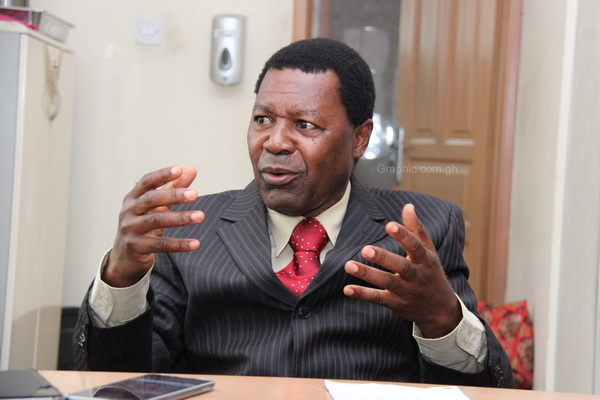
New health insurance levy will overburden citizens — Stakeholders
Some stakeholders in the health sector have kicked against a proposal by the National Health Insurance Authority (NHIA) for an increment in the National Health Insurance Levy from 2.5 per cent to 3.5 per cent.
The stakeholders are also opposed to the imposition of a 20 per cent tax on telecommunications as part of efforts to re-design the financial model of the National Health Insurance Scheme (NHIS).
Advertisement
In its bid to ensure efficiency and improve on effective service delivery, the authority has tabled a number of interventions to restructure the NHIS.
Participants’ suggestions
At a stakeholders’ forum in Tamale last Thursday, participants called on the government to find a sustainable and holistic funding source for the NHIA to ensure efficiency and avoid a taxation system that would overly burden the citizenry.
They proposed that the government should remit the entire 2.5 per cent NHIL to the authority and also address anomalies in the administration of the health insurance scheme.
They also called on the government to explore public-private partnerships (PPP) to address health needs, such as the supply of anti-rabies and anti-venom serums to improve on healthcare delivery in the country, particularly in rural communities where snake and dog bites were prevalent.
A Knowledge and Communication Officer of Basic-Needs Ghana, Mr Fred Nantogmah, said “even at the current 2.5 per cent levy, not all is given to the NHIS, so increasing the base rate from 2.5 to 3.5 per cent is not right”.
The Northern Regional Operations Manager of the NHIA, Mr Hamza Salifu, explained that the new levies were not meant to overburden the citizens but help reposition the scheme to enable it to operate effectively.
He said although some of the restructuring models proposed were faced with disapproval by a section of the public, the authority was pushing hard for the government to approve the proposal to help reposition the scheme.
Forum
The meeting, organised by the Universal Access to Health Care Campaign (UAHCC) and the Alliance for Health and Reproductive Rights (ARHR), in collaboration with the Integrated Social Development Centre (ISODEC), brought together various stakeholders in the health sector to discuss gaps in the 2019 budget statement for the health sector and develop a communiqué highlighting priority areas for consideration in the 2019 appropriation bill.
On the theme: “The 2019 Health Budget Statement; Is Ghana Investing Enough to Achieve Universal Health Coverage?”, the meeting afforded the participants the opportunity to strengthen advocacy in their call for the government to increase funding for the NHIA and the Community-Based Health Planning Services (CHPS) compounds, Ghana’s primary healthcare model.
The Campaign Coordinator for the UAHCC, Nii Ankonu Annorbah-Sarpei, said concerns raised by the stakeholders would be forwarded to the appropriate authorities for consideration to help strengthen the health sector.



